Biden eases some Trump-era sanctions on Cuba, Havana calls it 'small step'
US President Joe Biden’s administration has announced plans to ease some sanctions imposed on Cuba by the former administration, including family remittances and travel, but the move falls short of ending the maximum pressure campaign against the Caribbean country.
The measures announced on Monday after a lengthy review will see charter and commercial flights operating beyond Havana after they were restricted to only the capital under the Trump administration.
It will also see the US government lifting caps of $1,000 per quarter on family remittances. Earlier, migrants were barred from sending more than $1,000 every three months.
The Cuban Family Reunification Parole Program, which allowed up to 20,000 immigration visas to the US each year, will be revived as part of new measures.
The US Department of State spokesman, Ned Price, said the move would allow Cuban citizens to pursue a life free from what he called "government oppression".
It will also expand authorized travel, support Cuban entrepreneurs, and “ensure that remittances flow more freely to the Cuban people while not enriching those who perpetrate human rights abuses”, according to US officials.
They also insisted that no one will be removed from the Cuba Restricted List, a State Department register of companies linked to the government in Havana with whom US citizens are barred from doing business, in an indication that the easing of sanctions was a mere eyewash.
A US government official was quoted as saying that Washington has already engaged with the Cuban government "about establishing a civilian processor for this" as the main financial processing firm, Fincimex, which has been run by the Cuban military, remains under US sanctions.
The new measures also include reinstating educational travel in groups under a general license, but the individual “people-to-people” educational travel will not be reinstated.
The measures are expected to be implemented over the coming weeks.
After tensions between the two countries had eased under former US President Barack Obama, Trump announced a slew of sanctions on the Cuban government in 2017.
Trump administration cut visa processing, limited remittances, and created hurdles for US citizens seeking to travel to Cuba for any reason other than family visits.
Biden vowed during his election campaign in 2020 to reverse some of his predecessor’s measures against Cuba that he acknowledged "inflicted harm on Cubans and their families”.
‘Small step in right direction’
Cuba's foreign minister on Monday welcomed the new announcement but said the easing of restrictions marked "a small step in the right direction".
In a Twitter post, Bruno Rodriguez criticized Washington for its failure to modify the embargo in place since 1962 or remove the country from the so-called list of state sponsors of terrorism.
"The decision does not change the embargo, the fraudulent inclusion (of Cuba) on a list of state sponsors of terrorism nor most of the coercive maximum pressure measures by Trump that still affects the Cuban people," he said.
The US has maintained a harsh economic, financial, and commercial embargo against Cuba for more than 60 years.
Numerous resolutions by the UN General Assembly have said the move is in breach of international law. However, that has not prevented Washington from consistently voting against the UN resolutions demanding an end to the harsh embargo on Cuba.
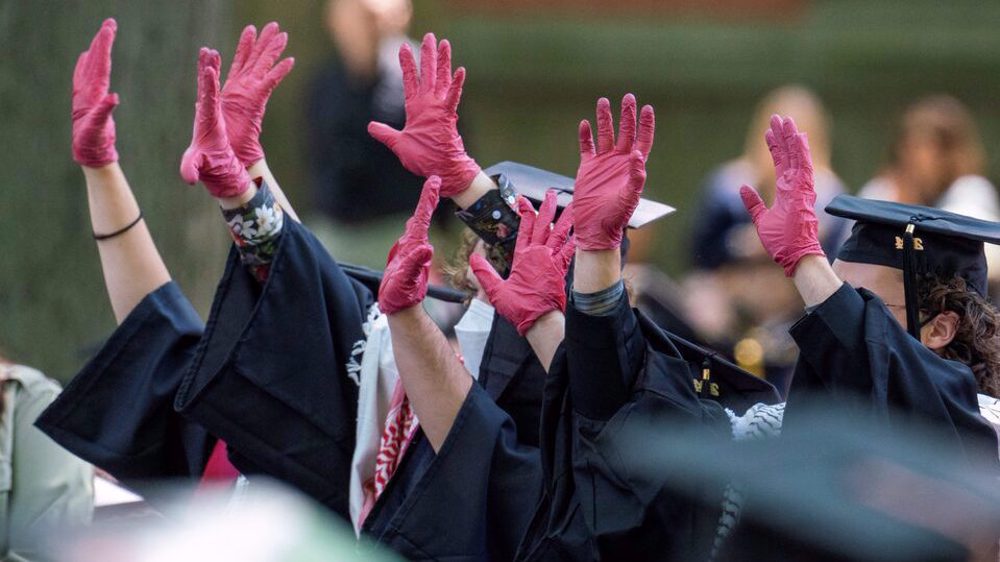
Students camp out at Yale to protest Israeli minister Ben-Gvir’s visit
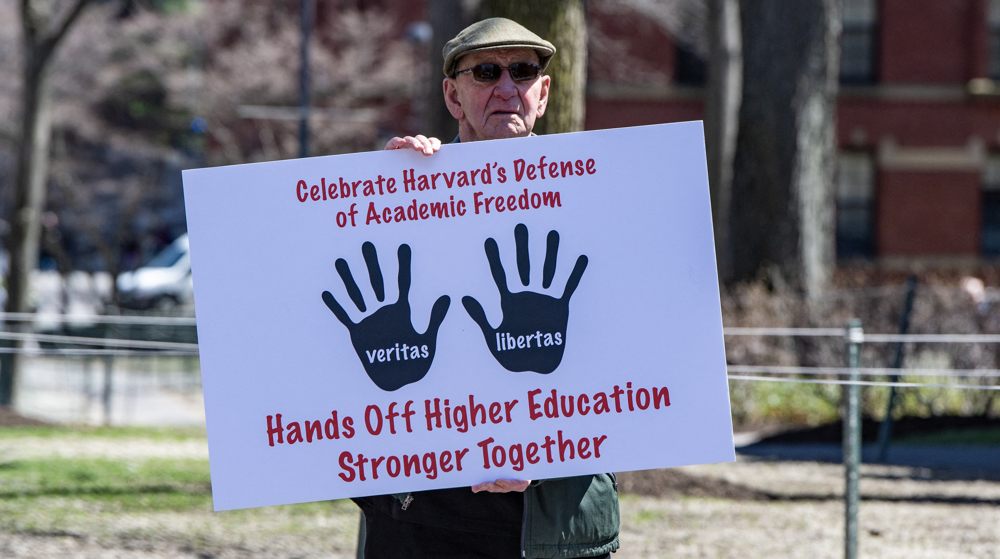
Over 220 US academic leaders slam Trump crackdown on universities
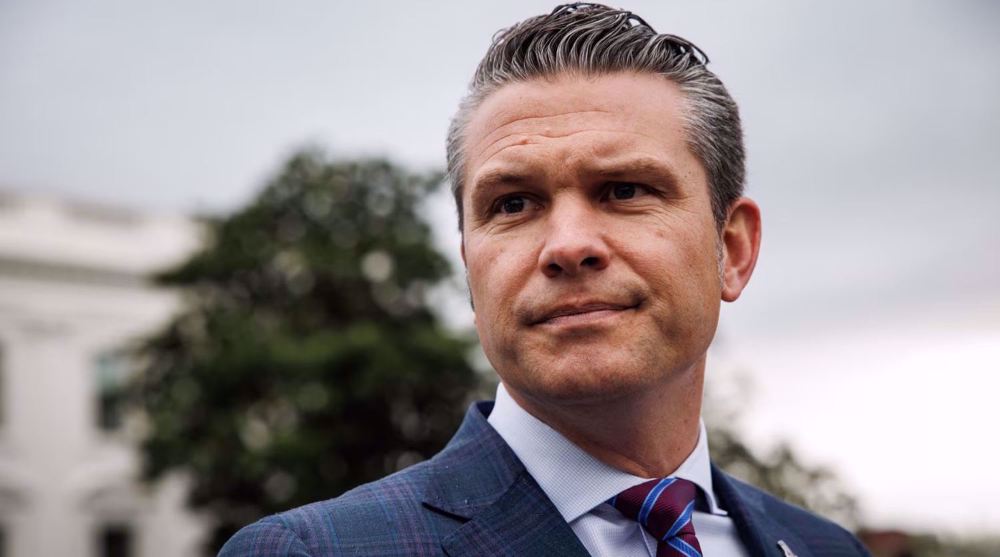
After second Signalgate scandal, Democrats call for Hegseth’s resignation
ICC rejects Israel’s request to cancel arrest warrants for Netanyahu
VIDEO | Starvation spreads as Gaza faces deepening famine
VIDEO | Fake anti-Muslim stories go viral once more
Trump poised to sell arms worth $100 billion to Saudi Arabia: Report
'War is defeat': Pope Francis will be remembered for his moral stand on Gaza
Cases of Esfandiari and Hazamy: France’s quiet war on Muslim, Iranian, pro-Gaza voices
VIDEO | India-Pakistan tension
Indonesia, Iran stress commitment to expanding relations


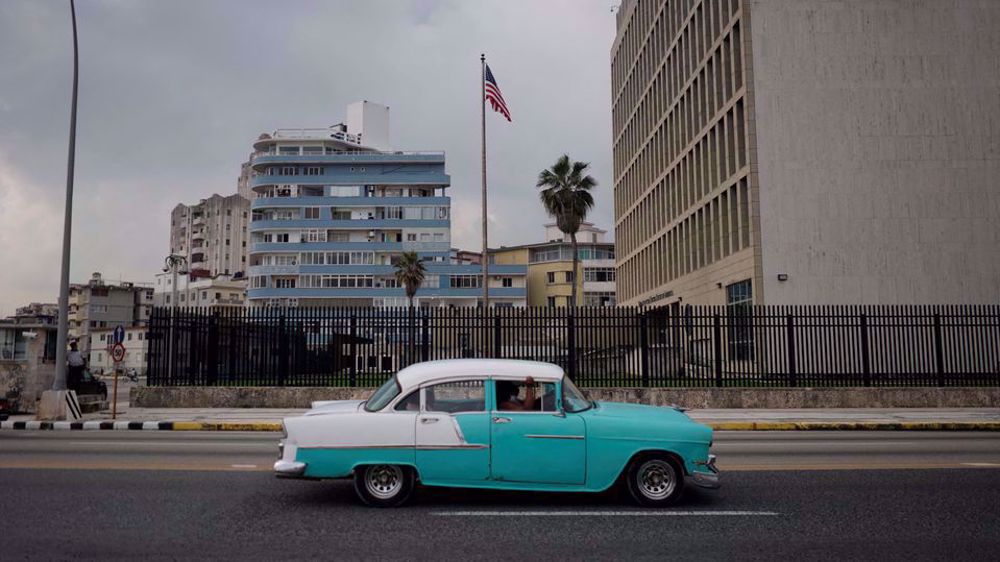



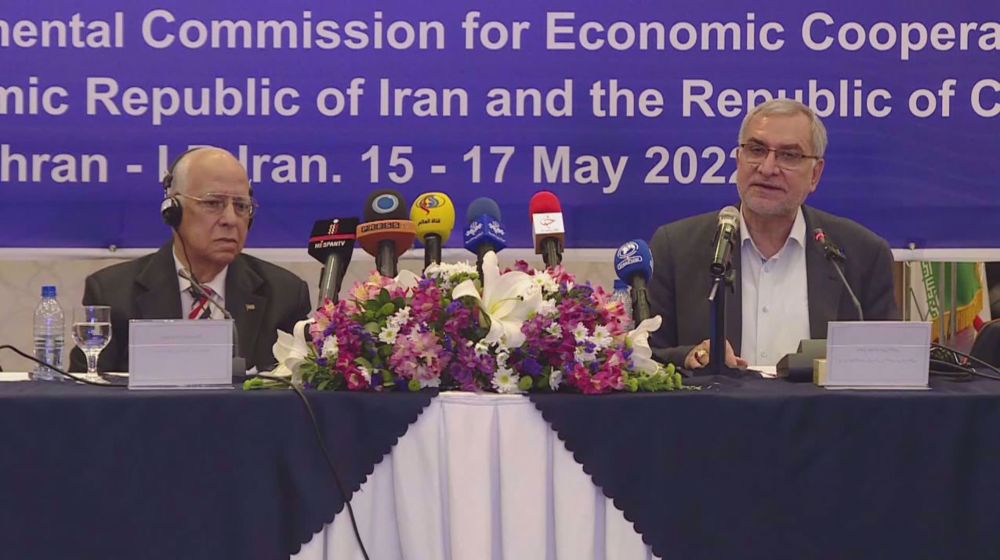
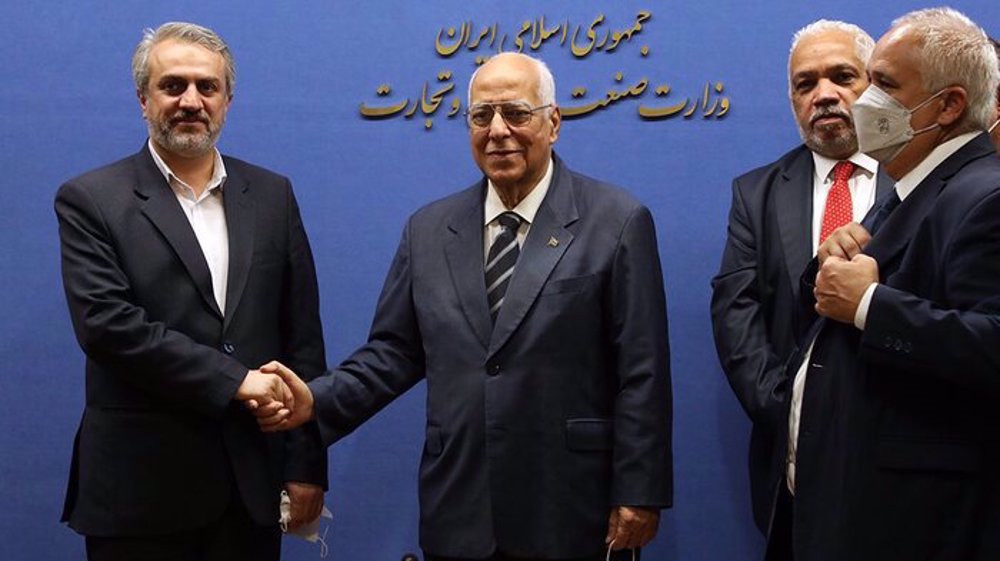
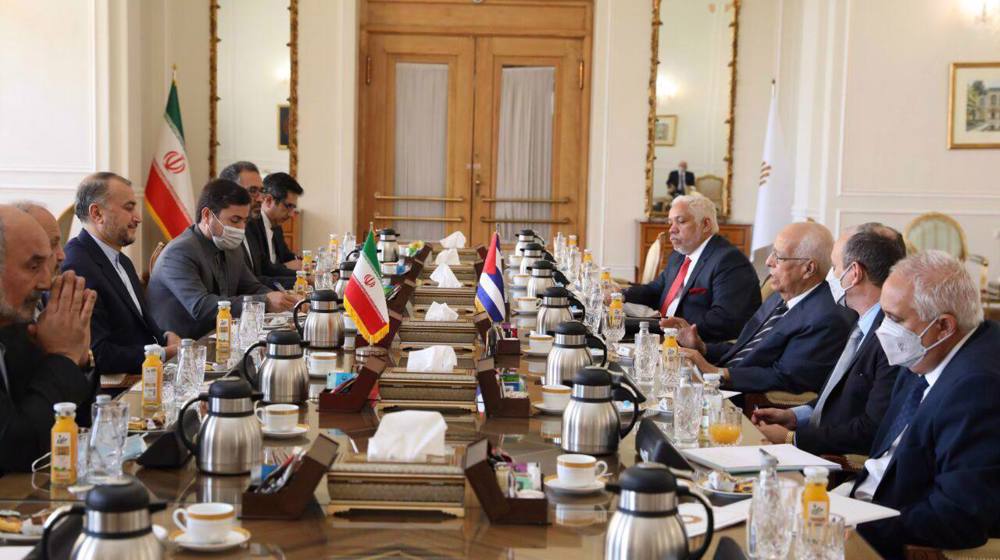
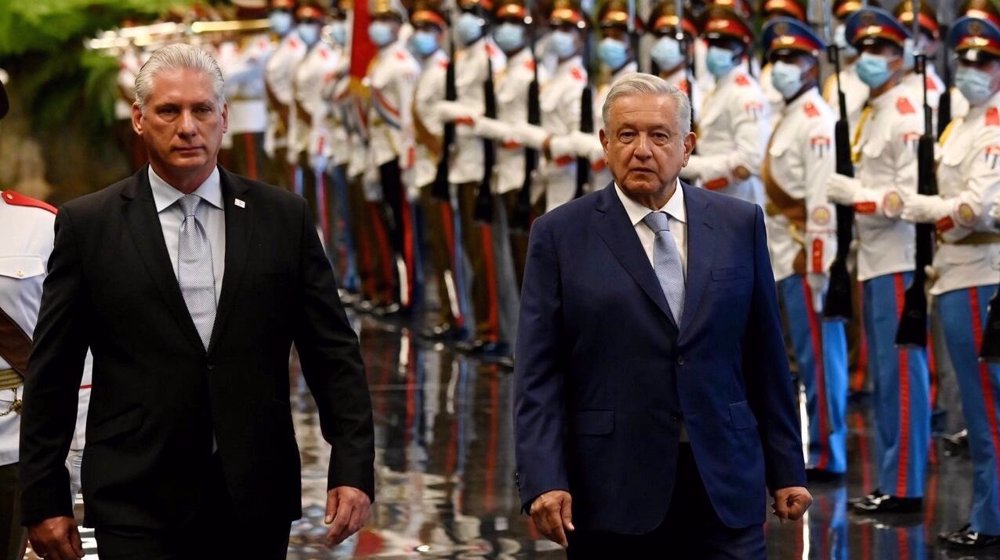

 This makes it easy to access the Press TV website
This makes it easy to access the Press TV website